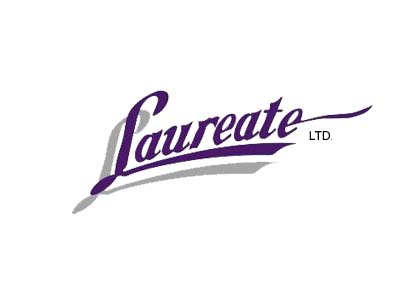Navigating security deposit deductions in Portland can be complex for landlords, especially with Oregon's stringent security deposit laws.
Whether you're an experienced property manager or a new landlord, understanding what you can and cannot do is essential.
This guide aims to clarify the nuances of security deposits, ensuring that you comply with regulations while maintaining a positive relationship with your tenants.
Understanding Security Deposits
A security deposit is a sum a tenant pays a landlord to safeguard the rental property during the lease. While security deposits are not mandated by law in Oregon, they are common and help protect landlords from damages or unpaid rent.
Landlords must adhere to Oregon security deposit laws when handling these funds. Specifically, OR Rev Stat § 90.300 outlines all of the basic requirements for security deposit handling in the state.
Security deposits act as a financial cushion, providing landlords a resource to cover costs associated with lease violations or property damage.
However, it's crucial to differentiate between allowable deductions and general maintenance, ensuring that you don't inadvertently violate tenant rights.
Security Deposit Requirements and Limits
Oregon places no legal limit on the amount a landlord can request for a security deposit. Typically, the deposit is equivalent to one or two months' rent, providing ample coverage for potential property issues.
However, be cautious—setting a high security deposit could deter prospective tenants, especially in a competitive rental market like Portland's.
Make sure the security deposit amount is specified in the written rental agreement. Writing this into the lease clarifies expectations for both parties and serves as a legal reference point should disputes arise.
In some cases, landlords might request an additional security deposit for specific circumstances, such as allowing pets or other special conditions.
Normal Wear and Tear vs. Damages
The concept of normal wear and tear is often misunderstood. It refers to the gradual deterioration of a property due to everyday use. Examples include faded paint, carpet discoloration, or minor wall scuffs.
Landlords cannot charge for these routine maintenance issues, as they are part of the property's expected lifecycle.
Damages, however, are distinct from wear and tear. They indicate harm resulting from a tenant's negligence or misuse, like broken windows or large holes in walls.
These damages justify deductions from the tenant's security deposit to cover repair costs.
Deductions and Returns
Landlords can deduct from a security deposit for specific reasons, including property damages, unpaid rent, or other financial obligations under the lease.
Oregon law requires landlords to provide an itemized list of deductions with the returned security deposit, offering transparency to tenants.
Security deposits must be returned or an explanation provided within 31 days after the tenant delivers possession of the rental unit.
If a landlord fails to comply with this timeline, it can result in tenants pursuing restitution in court, which may lead to penalties for the landlord.
Similarly, if a tenant fails to fulfill their obligations, deductions may be justified.
Special Cases and Exceptions
There are particular scenarios where standard rules for security deposits might differ.
For instance, if landlords collect prepaid rent, such as last month's rent deposit, it must be used appropriately at lease termination.
Additionally, while pet deposits are permissible, service animals are exempt due to federal fair housing laws.
When accepting a security deposit or prepaid rent, issue a written receipt to the tenant.
Transparency in these transactions helps avoid misunderstandings and potential disputes. Sending communications via first-class mail can ensure timely and documented delivery.
Taxes and Security Deposits
Security deposits are not taxable income for landlords until they are forfeited due to tenant default. The funds remain the tenant's property until legally retained by the landlord, ensuring a clear delineation between refundable deposits and actual income.
Maintaining accurate records of security deposits, including transactions and any deductions made, supports financial integrity and simplifies tax reporting.
Best Practices for Landlords
To prevent disputes and ensure compliance with Oregon security deposit laws, landlords should adhere to these best practices:
Keep detailed records of all security deposit transactions and deductions.
Provide tenants with written receipts upon receiving deposits or prepaid rent.
Return deposits promptly with itemized deductions, if any, within the legal timeframe.
Staying informed and organized not only fosters a positive landlord-tenant relationship but also protects against legal challenges.
The Role of Property Managers
Property managers play a significant role in overseeing security deposits and ensuring compliance with Oregon residential landlord laws. They bridge the gap between landlords and tenants, providing expertise and prompt communication.
By employing an experienced property manager like Laureate LTD, you can reduce the administrative burden of managing security deposits, mitigate risks, and enhance tenant satisfaction.
Common Missteps in Security Deposit Management
Landlords occasionally make errors in handling security deposits, such as deducting for standard wear and tear or neglecting to return deposits on time.
These mistakes can lead to legal repercussions and strained tenant relationships.
Understanding what constitutes normal wear and tear versus damages is vital.
Adherence to timelines for returning security deposits or providing written accounting avoids unnecessary conflicts.
Legal Recourse for Tenants
Tenants have rights when it comes to security deposits. If landlords fail to return deposits within the specified period or deduct improperly, tenants can file claims in small claims court.
These proceedings can result in landlords paying up to twice the amount wrongfully withheld, in addition to court costs.
Proactively managing deposits and communicating transparently with tenants minimizes these instances and maintains goodwill.
Resources and Tools for Compliance
Leveraging resources, such as legal counsel or property management software like DoorLoop, helps landlords comply with Oregon's stringent security deposit provisions.
These tools offer guidance, documentation templates, and automated reminders for deadlines, ensuring that landlords remain on the right side of the law.
Additionally, staying updated with legislative changes through reliable sources and training programs equips landlords with the knowledge needed to manage their properties effectively.
Building Trust with Tenants
Establishing trust with tenants is fundamental for successful property management. Clear communication about security deposit policies and fair treatment in deductions builds a positive rapport and encourages long-term tenancy.
Being responsive to tenant inquiries and addressing concerns about deductions or deposit returns promptly fosters a respectful and cooperative relationship.
Moving Forward with Confidence
Understanding Portland's security deposit rules can empower you to manage your properties efficiently and openly.
By adhering to best practices, seeking professional help when needed, and maintaining transparency with tenants, you can uphold your responsibilities and protect your assets.
For further assistance, consult with us at Laureate LTD.



